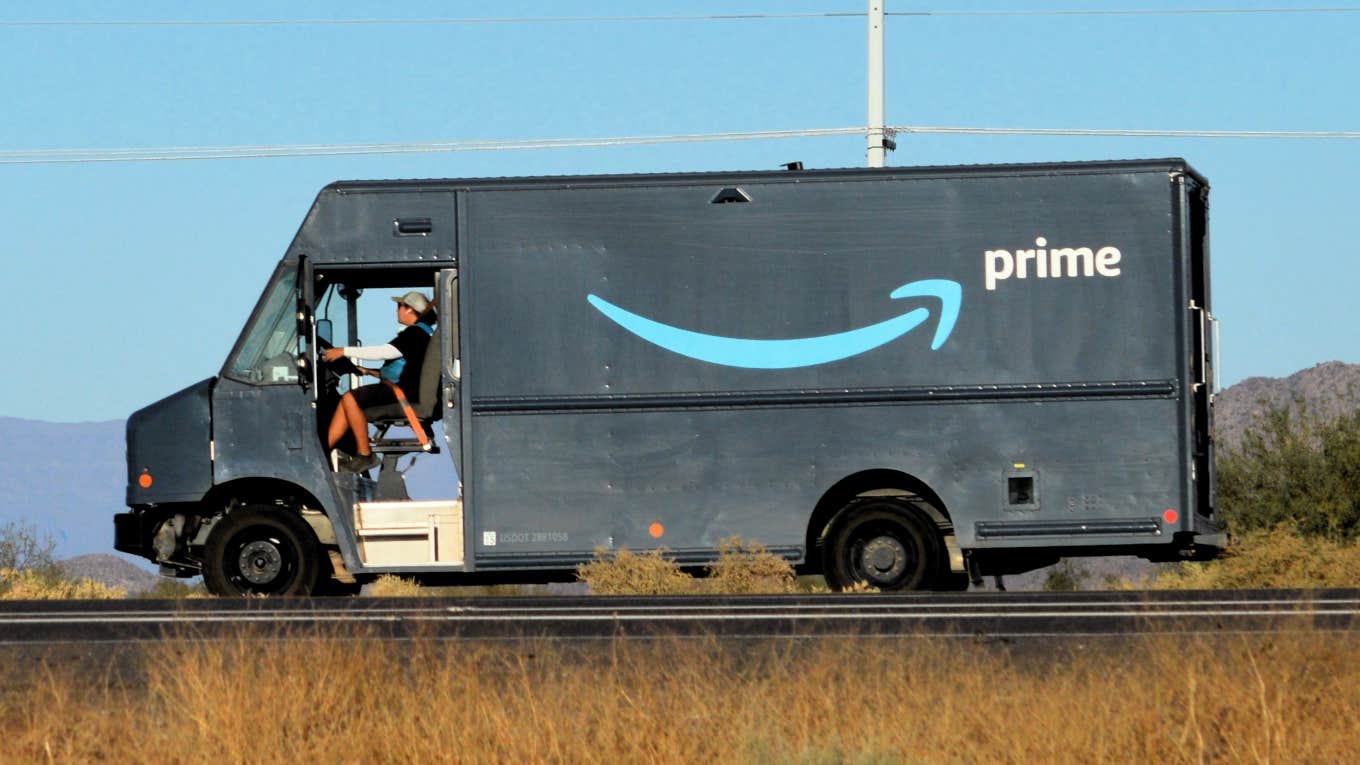Doechii Producer Learned He'd Won A Grammy While Driving His Amazon Truck — 'The Side Of The Industry People Never See'
This is exactly what Chappell Roan was talking about in her Grammy acceptance speech.
 Around the World Photos
Around the World Photos When Chappell Roan used her Grammy acceptance speech to advocate for better pay and working conditions for up-and-coming music industry artists, she was dismissed by many as a whiny newcomer insisting people should be rewarded without paying their dues.
However, music producer Joey Hamhock's story is a prime example of what Roan was trying to expose. While he may now be on the top of the music industry heap, you'd never know it by his day-to-day life.
Doechii producer Joey Hamhock found out he won a Grammy while driving his Amazon truck.
Rapper Doechii made history at the 67th Annual Grammys when she won the Best Rap Album award for her mixtape "Alligator Bites Don’t Heal." In the 30 years the category has existed, Doechii is only the third woman to win it, after Lauryn Hill's 1997 win with The Fugees and Cardi B's win in 2019.
Her victory was propelled especially by her hit "Denial Is A River," a song that irreverently details the dark side of her rise to prominence over the past few years.
But while Doechii was bringing the house down with her Grammy performance of "Denial Is A River," one of the producers of the song, 27-year-old Joey Hamhock, was nowhere near the ceremony. Instead, he was behind the wheel of the truck he still drives as an Amazon delivery worker, despite producing one of the biggest hits of the last year.
Joey Hamhock found out he won during a phone call home while on a break from deliveries.
Hamhock, whose real name is Spencer Golanka, is one of the producers of not just "Denial Is A River" but another Doechii tune, "Boiled Peanuts." Though he won't take home an actual trophy — those are reserved for lead producers — he is classified as a Grammy winner with a certification and everything.
It's a huge achievement, especially for someone so young, and one likely to change his career trajectory. But the way he found out is surprising. He'd taken a break from his Amazon deliveries to call his parents and found them jubilant on the other end: They'd just watched Doechii pick up her trophy for "Alligator Bites Don't Heal" and in so doing make their son a Grammy winner too.
Soon, he had "150 texts and DMs to go through, a bunch of people calling me," he told The Daily Californian, the newspaper of his alma mater, the University of California Berkeley. "It was overwhelming honestly, everybody was extremely excited and supportive."
That night, Golanka filmed a TikTok from behind the wheel of his Amazon truck that gives a glimpse into just how much his day-to-day life contrasts with the glamor of the music industry. "I just won a [explitive] Grammy?" he said incredulously as he showed the truck full of packages.
Golanka's situation isn't rare in the music industry these days, and it's exactly what Chappell Roan was getting at.
There's no denying that Golanka's story is the kind of thing Hollywood dreams are made of — one minute you're an Amazon driver, and the next you're a Grammy winner. Hollywood, and Americans, love this kind of "overnight success" story.
But it's impossible to ignore the dark side of Golanka's situation. You don't expect someone on tap to win a Grammy to still be out hustling and delivering people's packages. It's a testament to how much the entertainment industry has changed, just like every other industry. Even in one supposedly built on wealth and glamor, "success" has been largely redefined — simply being able to work in an industry like music is considered a reward in and of itself.
That's pretty much exactly the view many took towards Chappell Roan when she tried to speak out about this during her Grammy speech the same night. Most notably, music executive Jeff Rabhan wrote an audaciously ridiculous op-ed in "The Hollywood Reporter" in which he characterized Roan as an entitled carpetbagger who'd not yet paid enough dues to have any right to criticize the industry.
Never mind that Roan's career began nearly a decade ago when she was signed to, and then dropped from, a record deal that was so unlucrative she ended up working as a barista in a drive-thru for years. Her signature hit, "Pink Pony Club," was first performed on a keyboard in a parking lot at an LA street festival just a few years ago.
Roan was advocating for fair pay and health insurance coverage for struggling music industry workers because she knows firsthand how the always cutthroat industry has devolved into one that relegates its up-and-coming creatives to a life of grinding poverty. Even rap legend Master P recently said he's mostly left the industry because "there's no money" in it anymore.
Golanka is sure to rise through the ranks now that he's gotten his big win, but his inspiring story is also a pretty searing indictment of the industry and of people like Rabhan who would have you believe that people like Golanka should just be grateful they get to work at all.
If you can produce a hit so successful you've won a Grammy at 27 but still have to drive an Amazon van to get by, something has gone very sideways. It should be a lesson to all of us that solidarity as working people is the only way things will change because even the glitz-and-glamor of Hollywood has now become a meat grinder for all but the extraordinarily lucky few.
John Sundholm is a writer, editor, and video personality with 20 years of experience in media and entertainment. He covers culture, mental health, and human interest topics.

